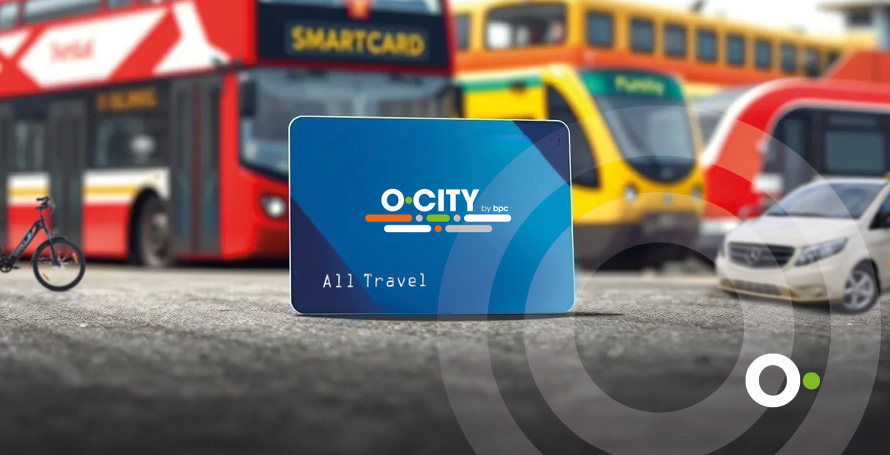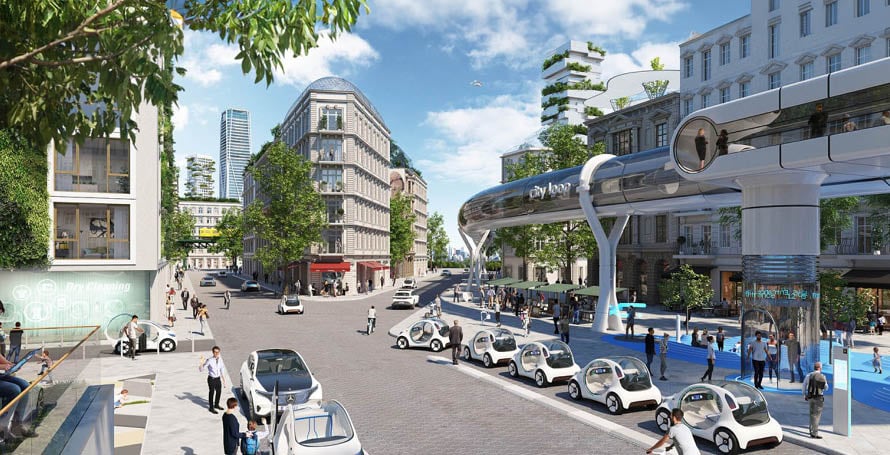Rail Projects Around The World, Middle East
Rail transportation in the Middle East has undergone a significant transformation over the years, from the traditional steam locomotives to modern and high-tech trains. Rail travel is becoming increasingly popular in the region, and rail projects are changing the transportation landscape by providing efficient, safe, and sustainable transport options. There are exciting rail projects underway in the Middle East that are connecting people and places like never before, and shaping the future of rail travel in the region.
Read on to explore some of the most fascinating rail projects taking place in the Middle East and their impact on transportation and the environment.
What the Latest Rail Projects in the Middle East Have in Store for the Region and Beyond.
One of the latest trends in rail travel technology is open-loop fare collection, which allows passengers to use contactless payment methods such as mobile wallets and credit cards to pay for their journeys. This technology can streamline the ticketing process, reduce wait times, and provide a more seamless user experience for passengers.
Another important development in rail technology is light rail automation, which involves the use of automated systems to control light rail vehicles. By utilising sensors, cameras, and other technologies, light rail automation can improve the safety and efficiency of rail travel, reduce the risk of accidents, and provide a smoother ride for passengers. As cities continue to expand, the use of light rail automation can help to provide reliable and sustainable transport options for residents and visitors alike.
To ensure that the transport system runs smoothly, the implementation of an effective rail ticketing system will be crucial. The use of modern rail ticketing technology, such as contactless payment methods and automated fare collection (AFC) systems, can simplify the ticketing process and improve the overall user experience for passengers.
Top Rail Projects in the Middle East
With so many exciting new developments in rail transportation, we can expect big things in the near future. Let's take a look at some of the top rail projects from the Middle East and see how they're shaping the future of travel.
Dubai Sky Pod Network
The Dubai Metro also known as the Dubai Sky Pod Transport System is a rapid transit rail network that serves Dubai and its suburbs. It is operated by the Dubai Roads and Transport Authority (RTA) and consists of two lines, the Red and Green lines. Since its launch in 2009, the metro has revolutionised transportation in Dubai by reducing traffic congestion and improving air quality. In addition to the existing metro lines, Dubai's Autonomous Transportation Strategy proposes the development of a futuristic transport system that would feature driverless pods operating above the city's traffic for a unique user experience. These pods would resemble a combination of a sky-lift and monorail and have lightweight vehicles attached to steel-made wheels that move along an air-suspended airline.
The transport system is expected to have 21 Sky Pod Stations and over 8,400 passengers per hour in one direction, with each driverless pod having four seats. The top speed of the system is expected to be 30 mph or 50 km/hr. While no completion date has been given, the system is anticipated to be operational by 2030, providing a new and innovative way to travel around the city.
Etihad Rail in Saudi Arabia
Etihad Rail is a new national rail network in the UAE that aims to connect all the Emirates and establish links with Saudi Arabia. The network is designed to replace heavy road vehicle trips and transport millions of passengers between major cities by 2030 while also connecting the country's centres of trade, industry, and population.
The state-of-the-art network is expected to boost the economy by approximately 200 billion AED ($54 billion) and reduce carbon emissions by up to 80%. With an estimated investment of 50 billion AED ($13.6 billion), the new rail network will cover over 1,200km across the country, providing a modern, safe, efficient, and sustainable transport network that will redefine logistics in the region. It will also serve as a catalyst for sustained social development and economic growth.
Saudi Landbridge
The Saudi Landbridge project is a major railway development in Saudi Arabia that aims to connect the Red Sea port of Jeddah with the Persian Gulf port of Dammam, passing through Riyadh. The project involves the construction of a 2,400 km railway line that will link major cities and include the construction of bridges, tunnels, and viaducts to overcome challenging terrain.
The railway line is expected to have a capacity of 2 million containers per year, as well as passengers, and will provide significant economic benefits by reducing transportation time of goods across the country, creating jobs, and decreasing the country's reliance on oil exports. While the completion date has been delayed several times, the project is still in progress and is currently set to be completed by 2027, with the potential to be a major boost to Saudi Arabia's economy and transportation network.
Haramain High-Speed Rail
The Haramain High-Speed Rail is a 450 km electrified railway line that connects the two holy cities of Makkah and Madinah with Jeddah, passing through King Abdullah Economic City and King Abdulaziz International Airport. A 450 km electrified railway line with a top speed of 300 km/h, the railway line is designed to provide a world-class travel experience for passengers, and has a capacity of over 60 million passengers per year.
The project was inaugurated in 2018 and has been in operation since then, providing several benefits, including reducing travel time and increasing accessibility for Hajj and Umrah pilgrims, as well as boosting the economy by promoting tourism and creating job opportunities.
Doha Metro
The Doha Metro is a rapid transit system in Qatar's capital, Doha. It consists of three lines, the Red, Green, and Gold lines, which serve various parts of the city and connect major landmarks such as the Hamad International Airport and the Msheireb Downtown Doha development.
The metro features air-conditioned trains with driverless technology, providing a comfortable and convenient means of transportation. It has significantly reduced traffic congestion and travel time, as well as improved air quality in the city. The Doha Metro was also an important part of Qatar's preparations for hosting the 2022 FIFA World Cup, providing a reliable and efficient means of transportation for visitors and fans.
Jeddah, Riyadh, and Makkah Metros
The Jeddah, Riyadh, and Makkah Metros are transport systems currently under construction in Saudi Arabia. In Riyadh, the metro system is set to become fully operational by 2023, while Jeddah's new metro system is expected to open in 2025. In Makkah, a four-line metro system covering 180km with 88 stations is being developed in six phases over 20 years. The system is intended to transport the millions of visitors who come to the city for Hajj and Umrah. The Jeddah metro project is a $60 billion initiative.
The Jeddah and Makkah metro systems will be designed to improve transport in the growing cities, while the Riyadh metro system will have six lines spanning 176 km with 85 stations. The exact completion date of these projects is not known, but they are expected to become fully operational by 2030.
The rail projects in the Middle East are contributing to the improvement of transportation in the region and promoting sustainable travel by reducing traffic congestion and improving air quality. These projects, ranging from high-speed trains to urban metros and freight railways, are transforming the way people travel and connect with one another while reducing the environmental impact of transportation.
As technology advances and cities grow, rail automation will continue to play a critical role in providing efficient, safe, and sustainable transport options in the Middle East and across the globe. With faster and more convenient travel, reduced carbon emissions, and improved connectivity, the future of rail travel in the Middle East with open-loop payments looks promising.
Learn more about rail automation and how O-CITY can help rail operators to grow their business



